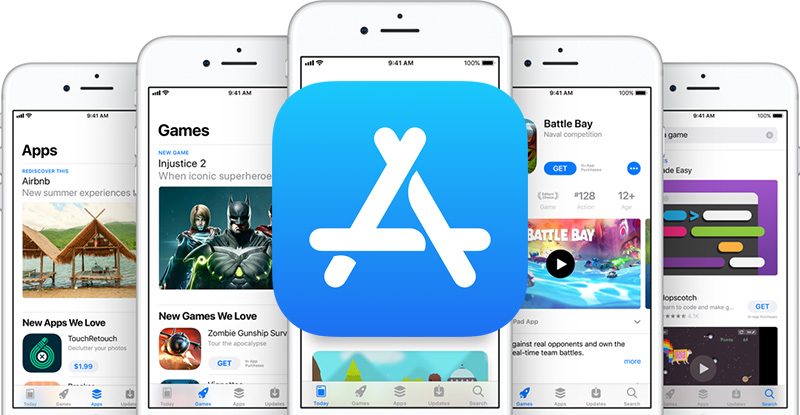Apple altered App Store search to prevent its own apps appearing first

What you need to know
- Apple made changes to App Store search to prevent its apps taking over.
- Apple's own apps were found to have an advantage prior to the change.
- Apple execs confirmed the move in an interview with the New York Times.
Apple has confirmed that it made changes to the way App Store search works so as to avoid its own apps consistently beating out those from third-party developers. Apple's SVP of Internet Software and Services Eddy Cue, and SVP of Worldwide Marketing Phil Schiller confirmed the move in an interview with the New York Times.
Apple found that its own apps were benefiting from an unfair advantage when users turned to App Store search. One example provided was Apple Music, an app that comes installed on all iPhones and iPads. According to the report, Apple's engineers found that the search algorithm thought anyone searching for "music" were only interested in Apple Music because that app received so many taps. Despite the app already being installed. Apple says that some users use search to find apps that are on their devices.
Over time this meant that Apple Music was the clear winner as far as search was concerned. But there was another unexpected consequence. The App Store also suggested apps from the same developer as Apple Music. That, of course, is Apple. That was by design, but with Apple Music getting all the love, Apple's apps appeared everywhere.
With searches for "music" displaying Apple Music and other Apple apps as results, competitors like Spotify and other music streaming apps fell by the wayside. At one point, the report notes that Spotify found itself as the 23rd entry when a user searched for "music".
It wasn't just "music" which was impacted, either. Searches for "TV" and "maps" were also affected with Apple's apps leading the way in search results.
Now Apple says that it has "improved" its App Store search algorithm to prevent that from happening. As of July 23rd it disabled the feature that groups their apps together when displaying search results. It appears to have worked, too, with many of Apple's apps suffering as a result.
On July 12, many Apple apps dropped sharply in the rankings of popular searches. The top results for "TV" went from four Apple apps to two. "Video" and "maps" changed from three top Apple apps to one. And Apple Wallet dropped from the No. 1 spot for "money" and "credit."
The full article on the NYT's website is well worth a read, if only for the handy scrollable demonstration of the timeline they've put together.
iMore offers spot-on advice and guidance from our team of experts, with decades of Apple device experience to lean on. Learn more with iMore!

Oliver Haslam has written about Apple and the wider technology business for more than a decade with bylines on How-To Geek, PC Mag, iDownloadBlog, and many more. He has also been published in print for Macworld, including cover stories. At iMore, Oliver is involved in daily news coverage and, not being short of opinions, has been known to 'explain' those thoughts in more detail, too.
Having grown up using PCs and spending far too much money on graphics card and flashy RAM, Oliver switched to the Mac with a G5 iMac and hasn't looked back. Since then he's seen the growth of the smartphone world, backed by iPhone, and new product categories come and go. Current expertise includes iOS, macOS, streaming services, and pretty much anything that has a battery or plugs into a wall. Oliver also covers mobile gaming for iMore, with Apple Arcade a particular focus. He's been gaming since the Atari 2600 days and still struggles to comprehend the fact he can play console quality titles on his pocket computer.
